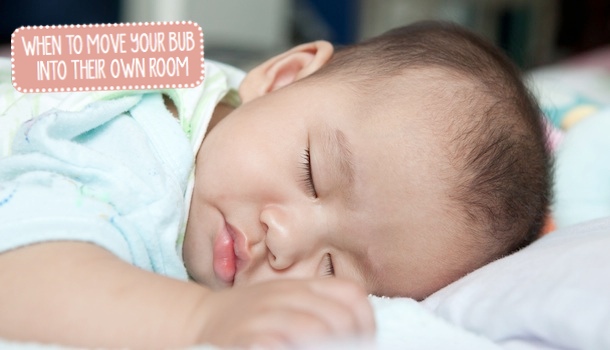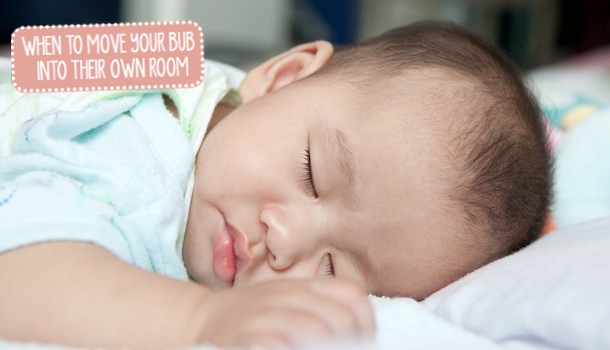
Essentially the choice is yours as the parent of your new baby. However, the guidelines in most countries regarding safe sleep for infants and the prevention of Sudden Infant Death Syndrome (SIDS) recommend that your baby sleep in your room for six months or longer.
Some parents prefer their baby to be in a separate room from the day they come home from hospital; others choose to co-sleep for a period of time and then move their child, but the majority of parents tend to sleep their babies in a cot or crib near their bed for at least the first six months. Of course, this is an individual choice, and the main considerations are safety and prevention of SIDS and, especially if breastfeeding, there will be easier night feeds if your baby is in your room.
Wherever your baby sleeps, it must be safe so when considering transitioning your baby to his or her own room you will need to:
- Make sure your baby’s cot or crib has a firm, well fitting mattress.
- Check that the temperature of the room can be regulated to ensure your baby is comfortable all night long, but definitely not too hot.
- Ensure that the curtains or blinds allow for the room to be very dark all night.
- Invest in a monitor so that you can hear if your baby needs you in the night.
- Always lay your baby down to sleep on his or her back.
- Remove bumpers and toys from the cot (however a small, safe ‘lovey’ or soft toy used for comfort is fine).
- Dress your baby in an all-in-one sleep suit or sleeping bag, which is more comfortable and much safer than loose blankets.
If your baby has been sleeping in your room for some time, make the transition a little easier for them by starting off with daytime naps in his or her new room. Change nappies in there, and generally get him or her used to the new sleep environment for a few days before transitioning them for the night time sleep.
You may find that you miss your baby being in your room and are concerned you will not hear if they need you in the night, but as long as you adhere to safe sleep principles, your baby is settling well in their new room and you have your monitor on then you will gradually be less concerned by the physical distance and be able to sleep more peacefully yourself.
It tends to be that the later you leave the transition beyond six months, the longer it can be for your baby to adjust, however in most situations that I see as a Sleep Consultant, it is usually not as difficult as a parent may expect!
Sleep well, mama!
Deborah Taylor is a UK trained paediatric nurse and health visitor who has lived and worked in Hong Kong for the past 9 years. She has specialised in infant and toddler sleep for many years, initially in London, UK and in 2004, founded the first infant and young child sleep clinic in Hong Kong. Following the success of the sleep clinic, Deborah now has her own company, Infant Sleep Resources offering a range of sleep services and packages to suit your infant and toddler sleep and settling challenges. For mamas in Singapore, Deborah can arrange Skype sessions to help with any sleep challenges you may be facing with your baby or toddler!






 View All
View All




 View All
View All










 View All
View All










